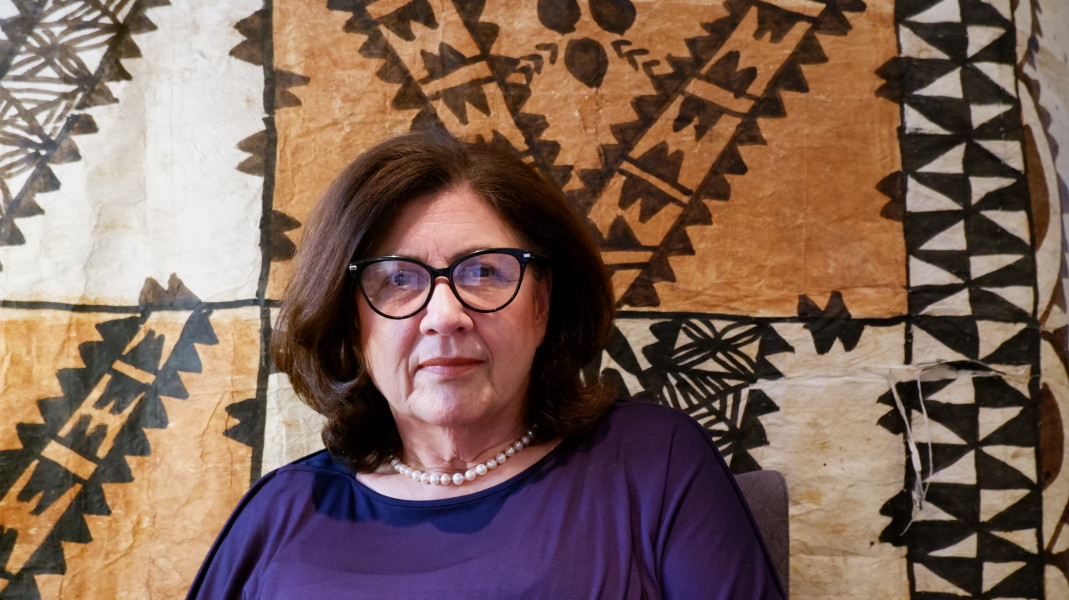Queen's birthday honour recognises mother's dedication to influencing change
Queen's birthday honour recognises mother's dedication to influencing change

(Picture caption: President of Down Syndrome International, and Executive Director of Family Network NZ Bridget Snedden, ONZM.)
When Bridget Snedden’s then five-year-old son Alex, who has Down syndrome, was rejected by his local school, it soon became the driving force behind Bridget’s dedication to influencing positive change for people with intellectual disabilities.
“This experience of rejection taught me how society viewed people with intellectual disabilities, so I committed to changing it for him and others like him,” Bridget says.
Since the birth of son Alex three decades ago, Bridget has advocated for removing barriers to enable people with learning disabilities to live independently in their communities, free from discrimination.
As the current President of Down Syndrome International, and Executive Director of Family Network NZ, a non-profit agency working alongside parents who have a family member with learning disabilities, she is still heavily involved in this space.
Her years of hard work was recognised at the recent Queen’s Birthday Honours, when Bridget became an Officer of the New Zealand Order of Merit (ONZM), for services to people with learning disabilities.
The gong is a nod to her late immigrant parents, Jim Curran from Donegal and Lineti Curran (nee Thompson) of Ma’ufanga, along with her biggest champion, husband Garry, she adds.
“I am the middle child in a family of nine, with three brothers and five sisters.
“We grew up in Mt Albert and attended our local Catholic school, in an era when there were very few mixed-race children, or half-caste as we were called then - I suppose I knew what it was like to be different early in life.
“My family was blessed to have a mother who was deeply committed to her husband, children, culture, and extended family, and we grew up knowing and understanding both our Tongan and Irish cultures.
“My late mother, Lineti, was our family matriarch and a great example to her children on how to be of service to family and community - I am very proud of my Tongan heritage, which has heavily influenced how I view the world.
“I wish my parents were here as this is also their honour, particularly my mother, who quietly went about helping people, which greatly influenced what I was to do.”
Bridget says receiving the award has been a time for pause and reflection.
“My deep love for my son with Down syndrome and his siblings is why I took the path I have.
“I learnt how to create a good life for Alex, and I then shared what I knew to support other families of disabled children - Alex has been an excellent teacher.”
Her work is far from over, however, as sadly, discrimination of people with intellectual disabilities still happens, Bridget says.
“It is not hard to be motivated to do what you can to make a difference when you see how many people with intellectual disabilities are treated in our society.
“Pasifika families, for example, lack information that provides them with the support that is meaningful to them.”
Bridget’s strong sense of social justice continues to motivate her to stand up for the injustices done to people who cannot speak for themselves.
“Everyone has the right to live, love, work and be educated alongside their family, friends and neighbours.
“I believe I have an opportunity to influence change, whether that's locally or internationally and always in the best interests of our members, families and people with Down syndrome.”
